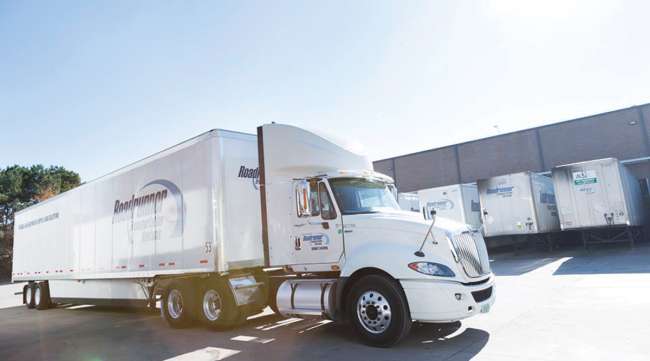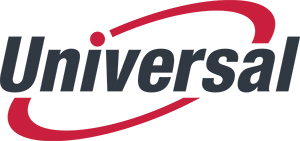Staff Reporter
Roadrunner Sells Intermodal Business to Universal Logistics for $51 Million

[Stay on top of transportation news: Get TTNews in your inbox.]
Roadrunner Transportation Systems has sold its intermodal business to Universal Logistics Holdings for $51.25 million in cash, the company announced Nov. 5, after a disappointing third quarter in which the company was hit with costly strikes and computer malware attacks.
The sale preceded the Nov. 6 announcement of earnings for the third quarter of 2019, in which Roadrunner posted a net loss of $97.8 million, more than double the net loss of $41.6 million in the same year-ago quarter.

Stoelting
The loss per share was $2.60 for the quarter ended Sept. 30 compared with a loss of $26.99 in the same quarter last year.
Revenue decreased 14% to $459.1 million from $536.6 million in the third quarter a year ago.
Roadrunner officials said the General Motors Co. strike and a malware attack hit the company in the quarter, both costing the Downers Grove, Ill.-based company $24 million in September alone.
CEO Curt Stoelting told analysts on a Nov. 6 conference call that the trucking company believed the third quarter would be difficult, with lower freight volumes and softening rates that came with them. But new challenges also arose.
“We expected some bumps in the road, and we certainly got them,” Stoelting said on the call.
It wasn’t just about the softer freight volume in the quarter, a problem many freight companies had, Roadrunner officials said. Stoelting and Roadrunner executives told analysts that a malware attack on the computer systems cost the company about $7 million in September. The attack problems continued into the present fourth quarter, costing an additional $3 million in October, company officials said.
The malware attack affected freight visibility, leading to delays in shipments, Stoelting said.
Stoelting and other officials said the bigger, costlier problem in the third quarter was the GM strike. GM is Roadrunner’s biggest customer, Stoelting said, and the work stoppage cost Roadrunner $17 million in September, and will cost $31 million more in October, part of the present fourth quarter. GM and the United Auto Workers agreed to end the six-week strike in late October.
Bruce Chan of Stifel Capital Markets asked Stoelting what the freight environment looked like for Roadrunner outside of those two events, with officials responding that Roadrunner had no unique perspective outside of noting the general softness that hit the U.S. freight market in the third quarter.

Chief Financial Officer Patrick Unzicker told analysts the recent sale of Roadrunner Intermodal Services will help the company’s liquidity in the fourth quarter. The sale was completed outside of the third quarter, on Nov. 5.
Unzicker said the company had $35 million in cash on hand, excluding the sale’s proceeds.
The company said the sale of the intermodal division will eliminate $22.3 million in debt and 700 power units. Roadrunner officials said the proceeds also will repay finance leases and debt associated with Roadrunner Intermodal Services, and pay transaction costs, with the remaining cash available for general corporate purposes.
Roadrunner Intermodal Services provides drayage and chassis management services to transport freight among ocean ports, rail ramps and shipping docks through 23 U.S. terminals. The intermodal business had revenue of approximately $125 million for the 12 months ended Sept. 30 and was part of the company’s truckload segment, according to Roadrunner officials.
The sale of the intermodal division will simplify the company’s portfolio by focusing on logistics and asset-light less-than-truckload segments to improve operating performance, Stoelting said in the earnings release. Universal Logistics was a good fit for the intermodal services business, he added.
Roadrunner has been attempting to adjust its business model after a 2017 accounting scandal and a softer freight market in 2019.
In April, the Securities and Exchange Commission formally charged former Chief Financial Officer Peter Armbruster and two of his associates with accounting fraud and misleading investors about the company’s financial results.
Armbruster was accused of hiding expenses by improperly deferring and spreading them across multiple quarters to minimize the impact on net earnings.
On Sept. 30, Roadrunner announced that it would lay off 450 employees and downsize its dry van business, a truckload segment the company said had become unprofitable. Roadrunner officials told analysts Nov. 6 that the downsizing will eliminate another 350 power units and five terminals.
Roadrunner ranks No. 17 on the Transport Topics Top 100 list of the largest for-hire carriers in North America.
Universal Logistics Holdings, based in Warren, Mich., provides transportation and logistics services, including dry van and flatbed truckload, intermodal and freight brokerage, dedicated contract carriage, and warehousing and distribution.
Universal ranks No. 28 on the for-hire TT100 and No. 27 on the Transport Topics Top 50 list of the largest logistics companies in North America.
Want more news? Listen to today's daily briefing:




